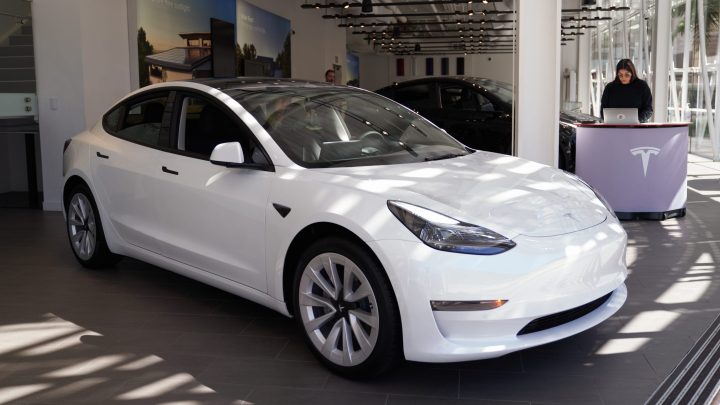
Electric vehicle tax credits are getting complicated

The calculus for buying an electric car got more complicated this month with some new guidance from the Department of Energy. The upshot is that some popular EVs like Tesla’s cheaper Model 3 cars, the Nissan Leaf and the Ford Mustang Mach-E will no longer qualify for the full $7,500 federal tax credit as of Jan. 1, because too many of their components originate in China.
Andrew Rosen in Chattanooga, Tennessee, has been shopping for a Tesla. He’s weighing not just the model, color and trim choices, but also the calendar.
“Do I buy it now? Do I buy it next year?” he said.
If he waits, the tax incentive can be taken immediately off the price of the car in 2024. But it could be cut in half for some models.
“People saying like, ‘Take delivery this year to take advantage of it,’ and then you see other people saying, ‘Next year will be more beneficial,'” he said.
“I have a Ph.D. in this stuff, and I still have to go on a case-by-case basis to figure out which car is eligible for what,” said John Paul Helveston at George Washington University.
The quickly shifting landscape of incentives this year can be overwhelming for consumers, he said. That could make it harder for automakers to predict demand, according to CFRA analyst Garrett Nelson.
“You could see higher EV sales of these models in the fourth quarter, and then followed by lower sales next year,” he said.
In the end, Andrew Rosen went for the Tesla Model Y — which still qualifies for the full tax credit.
There’s a lot happening in the world. Through it all, Marketplace is here for you.
You rely on Marketplace to break down the world’s events and tell you how it affects you in a fact-based, approachable way. We rely on your financial support to keep making that possible.
Your donation today powers the independent journalism that you rely on. For just $5/month, you can help sustain Marketplace so we can keep reporting on the things that matter to you.











